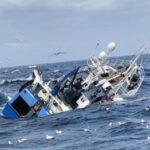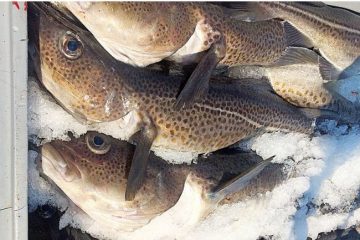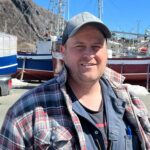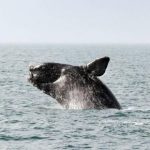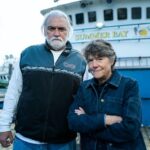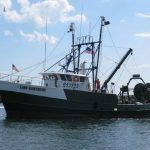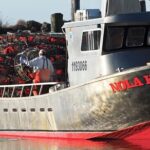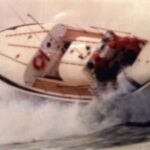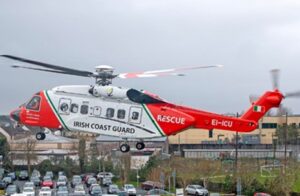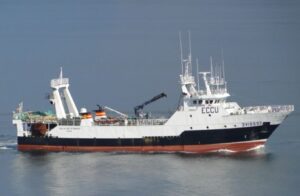Tag Archives: Al Cottone
Limits on ratio of fisherman decried
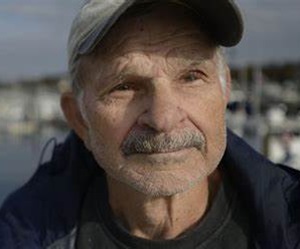 Gloucester Capt. Salvatore “Sam” Novello who has fished the waters off Gloucester for most of his life, is saying while he can fish, some foreign-born fishermen cannot. A member of the Gloucester Fisheries Commission, Novello said this week the U.S. Coast Guard has recently begun to strictly enforce a rule that limits the number of immigrants who are allowed to fish. The measure, the 75-25 rule, requires that 75% of those crews fishing must be American while only 25% can be foreign. In other words, for every four fishermen, three must be native born and only one can hail from another country. Novello blasted the rule as burdensome, saying it only contributes to a slew of other regulations and fishing limits already imposed by NOAA Fisheries that hamper the fishing industry. “Today, all fishing operations can’t find enough help to go fishing,” he said. “ >>click to read<< 07:21
Gloucester Capt. Salvatore “Sam” Novello who has fished the waters off Gloucester for most of his life, is saying while he can fish, some foreign-born fishermen cannot. A member of the Gloucester Fisheries Commission, Novello said this week the U.S. Coast Guard has recently begun to strictly enforce a rule that limits the number of immigrants who are allowed to fish. The measure, the 75-25 rule, requires that 75% of those crews fishing must be American while only 25% can be foreign. In other words, for every four fishermen, three must be native born and only one can hail from another country. Novello blasted the rule as burdensome, saying it only contributes to a slew of other regulations and fishing limits already imposed by NOAA Fisheries that hamper the fishing industry. “Today, all fishing operations can’t find enough help to go fishing,” he said. “ >>click to read<< 07:21
Gloucester celebrates its finest kind
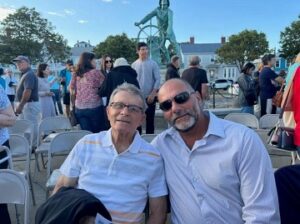 The launch of Gloucester Fisheries Heritage Month in the city’s 400+ anniversary year in front of the Fishermen’s Memorial on Stacy Boulevard on Tuesday evening celebrated the finest kind of the nation’s oldest fishing port. About 200 people cheered for the fishermen ages 80 and older who sat in the front row of chairs, and who were given a commemorative Gloucester 400+ medal as a way to honor them. “I couldn’t think of any better way to kick off this month than to honor the gentlemen here in front of me. I just want you to know you are all very near and dear to my heart,” said Al Cottone, a commercial fisherman and the executive director of the Gloucester Fisheries Commission. “You blazed the trail for what this industry is and hopefully what it will be in the future, and I just want to say thank you all, and today is for you.” 6 photos, >click to read< 07:47
The launch of Gloucester Fisheries Heritage Month in the city’s 400+ anniversary year in front of the Fishermen’s Memorial on Stacy Boulevard on Tuesday evening celebrated the finest kind of the nation’s oldest fishing port. About 200 people cheered for the fishermen ages 80 and older who sat in the front row of chairs, and who were given a commemorative Gloucester 400+ medal as a way to honor them. “I couldn’t think of any better way to kick off this month than to honor the gentlemen here in front of me. I just want you to know you are all very near and dear to my heart,” said Al Cottone, a commercial fisherman and the executive director of the Gloucester Fisheries Commission. “You blazed the trail for what this industry is and hopefully what it will be in the future, and I just want to say thank you all, and today is for you.” 6 photos, >click to read< 07:47
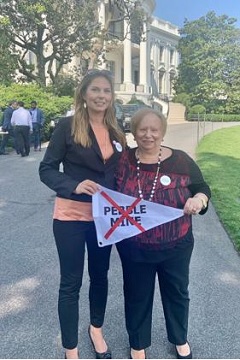
Sanfilippo invited to Rose Garden for salmon fight
For more than a decade Angela Sanfilippo, president of the Gloucester Fishermen’s Wives Association, has helped advocate for the cause to protect Bristol Bay in Southwest Alaska and the world’s largest sockeye salmon fishery from a proposed open-pit gold and copper mining project near the bay’s headwaters. She did so even though Gloucester, the nation’s oldest seaport, and Bristol Bay are some 3,600 miles apart on opposite coasts of the United States. On Thursday at 4 p.m., Sanfilippo attended a celebration in the Rose Garden of the White House that marked the protection of Bristol Bay from the Pebble Mine project. Sanfilippo recalls being contacted by Katherine Carscallen of Dillingham, Alaska, who today is the director of the Commercial Fishermen for Bristol Bay and a salmon fisher as captain of the F/V Sea Hawk. >click to read< 07:33
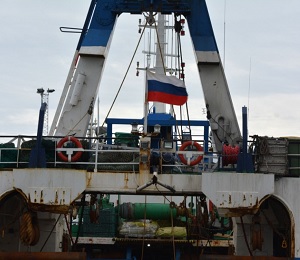
Massachusetts Seafood Collaborative calls for sanctions on Russian fish imports
The Boston-based Massachusetts Seafood Collaborative, which has several Gloucester members, is calling for sanctions to take a bite out of Russian fish imports because of the war in Ukraine. The collaborative, which counts the Gloucester Fishermen’s Wives Association as a member, said that in 2021, the U.S. imported $4 billion worth of Russian fish for processing, leading directly to jobs and paychecks for Massachusetts residents. “Though Russia blocks imports of American fish,” the collaborative said, “our commitment to free trade and open markets allowed this one-sided relationship to bear fruit. The invasion of Ukraine by Russia has forced our industry and our nation to decide between our ideals and our wallets.”>click to read< 08:42
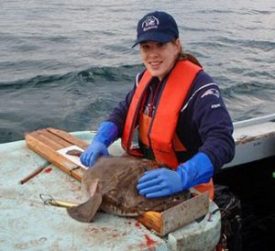
New England Fishery Management Council chooses 100% monitoring option on all groundfish trips
The council, which expects to take final action on the amendment at its meeting in late September and early October, has selected putting monitors on 100% of all groundfish trips as its preferred alternative for accomplishing the goal of the amendment — improving catch accountability, maximizing the value of collected data and minimizing costs. 0% monitoring levels and flatly proclaiming that forcing the industry to pay for 100% monitoring would bring an end to the historic commercial fishery. “The numbers you have up there make no sense to me,” said David Leveille,, “This will accelerate the expiration date of the fishery,” said Al Cottone, longtime Gloucester fisherman and the city’s fisheries director. “Once the federal money (which currently pays for at-sea monitoring) runs out, it’s over.” >click to read< 09:59
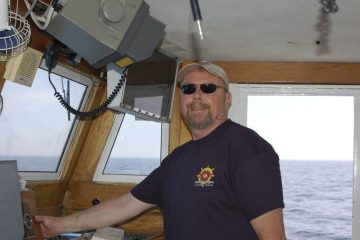
NOAA/NMFS to foot at-sea monitoring costs – Thank You Senator Shaheen!
Timing may not be everything but it sure counts for a lot. Just ask New Hampshire groundfisherman David Goethel. Goethel, who had persevered through cascading years of escalating regulation, slashed fishing quotas, a failed lawsuit and, more recently, the prospect of paying the full cost of at-sea monitoring, was ready to get out of commercial groundfishing. “I had planned to sell my boat this summer,” Goethel said Wednesday, referring to his 44-foot, Hampton, New Hampshire-ported Ellen Diane. “I was done.” Last week, following a full year of working behind the scenes with U.S. Sen. Jeanne Shaheen of New Hampshire, Goethel got the news he and other groundfishermen wanted to hear: >click to read<08:24
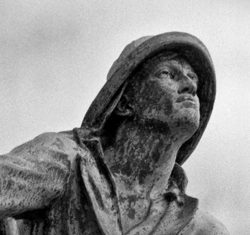
Sam Parisi is asking all fishermen to attend the Gloucester Fisheries Commission meeting December 14th
I recently had a letter I wrote printed in our local paper. This was regarding a commitment the Mayor of Gloucester, Sefatia Romeo Theken made when she was running in 2016. That being, to hire a Fisheries Director part time and than look down the road for full time. She kept her word. In my letter I said we need to now hire someone full time. Not to take anything away from our director Al Cottone, he has done a good job, but you can not expect him or anyone else to do this effectively on a part time basis. click here to read the story 15:07

Gloucester: City needs full-time fishing director
The need for a full-time fisheries director is now. Back in 2015, then interim Mayor Sefatia Romeo Theken and the Gloucester Fisheries commissioners agreed there was need for a full-time director. It has been almost 20 years since we had someone full-time. They also agreed the job was horrendous and time-consuming. In 2016, at a mayoral debate that I attended, I asked both candidates, Paul McGeary and Romeo Theken if they would support a full-time fisheries director. click here to read the story 20:11
Gloucester Fishermen to council: Trust in data needed
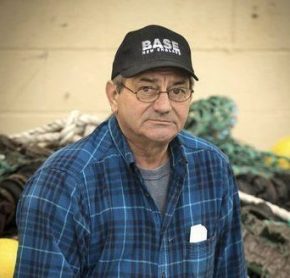 One by one, the Gloucester fishermen settled in front of the microphone for those with something to say to the New England Fishery Management Council and, one by one, they delivered their thoughts. Some of the remarks, such as those from Tom Orrell of Yankee Fleet and Paul Vitale, captain of the Angela & Rose, were short and to the point. Orell wanted to know why the for-hire boats faced so many restrictions in the Gulf of Maine and Vitale simply wants more fish quota. Now. Joe Orlando of the Santo Pio talked science and cod, while longtime fishermen Al Cottone and Rick Beal (powerful comment) adopted more philosophical tones, speaking to the council on the need for a two-lane channel of trust and truth. click here to read the story 20:59
One by one, the Gloucester fishermen settled in front of the microphone for those with something to say to the New England Fishery Management Council and, one by one, they delivered their thoughts. Some of the remarks, such as those from Tom Orrell of Yankee Fleet and Paul Vitale, captain of the Angela & Rose, were short and to the point. Orell wanted to know why the for-hire boats faced so many restrictions in the Gulf of Maine and Vitale simply wants more fish quota. Now. Joe Orlando of the Santo Pio talked science and cod, while longtime fishermen Al Cottone and Rick Beal (powerful comment) adopted more philosophical tones, speaking to the council on the need for a two-lane channel of trust and truth. click here to read the story 20:59
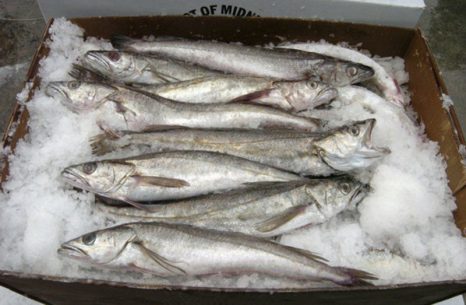
Amendment 22: Lack of action on whiting pleases most local fishermen
The New England Fishery Management Council on Tuesday didn’t appear to have much interest in limiting future access to the whiting fishery that includes Ipswich Bay. “It’s a victory of sorts,” said longtime Gloucester fisherman Al Cottone, who also is the executive director of the city’s Fisheries Commission. “It showed that the council really has no appetite for limiting access to the whiting fishery.” The proposal, developed by the council’s whiting committee during the formation of proposed Amendment 22, still will include the option of limiting access when it goes out to public comment at some point this winter.,, Cottone, along with fellow Gloucester fishermen Joe Orlando and Russell Sherman, spoke in opposition to limiting access to the fishery,, click here to read the story 09:15
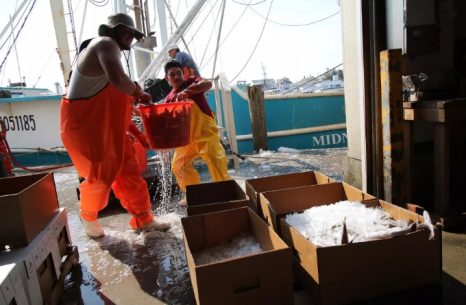
Something fishy in the quotas?
The clatter reverberated in the refrigerated cold as workers offloaded fish and wheeled full bins into a storage area on Fisherman’s Wharf. The catch was sorted, weighed, labeled, and eventually loaded onto large trucks headed for New York. It was a big haul, but not a big payday for Tom Testaverde Jr., captain of the Midnight Sun. “Our season’s been good. We caught a lot of fish, but the prices have been killing us all year,” Testaverde said. He pointed to imports that drive prices down, and regulations that limit what kinds of fish he can catch. Those federal limits on some species — particularly groundfish such as cod and flounder — are at odds with what commercial fishermen say they are seeing in the ocean. click here to read the story 14:34
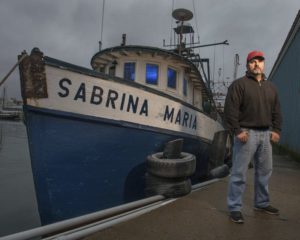
Gloucester Fisherman Al Cottone to serve as city’s fisheries director
Al Cottone, 50, a longtime Gloucester fisherman and a staunch advocate for the commercial fishing industry, is filling the newly re-created job, Chairman Mark Ring announced at Thursday night’s Fisheries Commission meeting at Gloucester High School. The position has been dormant for several years, but Mayor Sefatia Romeo Theken, in consultation with the Fisheries Commission, reignited a belief that the city and its fishing industry would greatly benefit from re-establishing the position to serve as the city’s liaison to state, regional and federal fishery managers and regulators. Cottone currently serves as a voting member of the Fisheries Commission, but his status will shift to a non-voting member once he assumes the new position July 1. Cottone, Gloucester born and bred, is a familiar face and respected voice at fishing-related meetings of the state’s Division of Marine Fisheries, the New England Fishery Management Council and NOAA. Read the story here 08:34


































